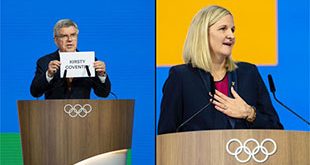
Paris, France | AFP | Increasing numbers of professional footballers are struggling with anxiety and depression having been forced out of action with the sport suspended due to the coronavirus pandemic, according to a report by global players’ union FIFPro released on Monday.
FIFPro surveyed 1,602 players across 16 countries, including England, Scotland, France, Australia and the United States, with 468 female players featured in the study.
It found that 13 percent of male players surveyed, and 22 percent of female players, reported symptoms of depression. Close to one in five of both male and female players reported symptoms of anxiety.
“In football, suddenly young men and women athletes are having to cope with social isolation, a suspension of their working lives and doubts about their future,” said Vincent Gouttebarge, a French former player who is FIFPro’s chief medical officer.
While many countries have gone into strict lockdowns in attempts to slow the spread of Covid-19, Gouttebarge pointed out that many professional footballers live in foreign countries without family, and in many cases suffer added anxiety because of being on short-term contracts.
The FIFPro survey follows an identical study undertaken in December and January which found that the percentage of players reporting symptoms of depression were much lower — just 11 percent among females and six percent among males — although it involved only 307 players.
“In us performing the study and publishing these results we are very conscious that what we are communicating here is a reflection of a problem in broader society that affects many more people than our members,” said FIFPro’s General Secretary, Jonas Baer-Hoffmann.
“I think the emphasis should be more on understanding that football players in general are actually more similar to average society than most people think.”
Footballers in many countries have been confined to their homes with competitions having been suspended since mid-March.
Discussions are ongoing among federations and governing bodies about how and when the season can resume, with Europe’s biggest leagues hopeful of starting again soon with matches behind closed doors.
However, Baer-Hoffmann sounded a note of caution and dismissed suggestions that the study provided any argument for rushing back onto the field.
“If we were to pressure players back in an environment where they may feel their safety is being put in danger, then it would rather add to their anxiety and concern,” he said.
 The Independent Uganda: You get the Truth we Pay the Price
The Independent Uganda: You get the Truth we Pay the Price



